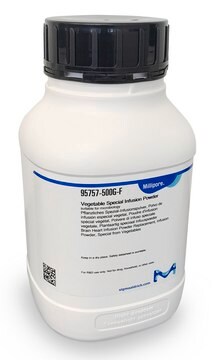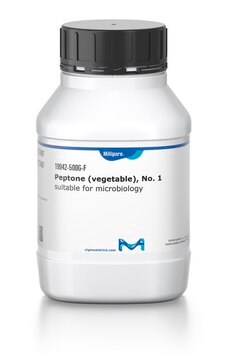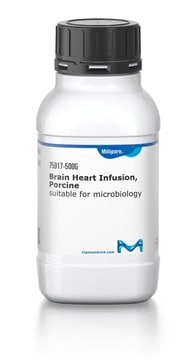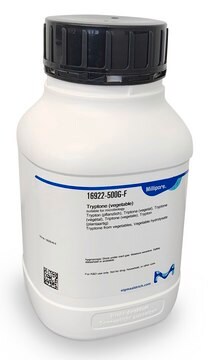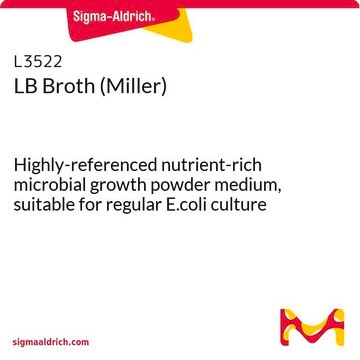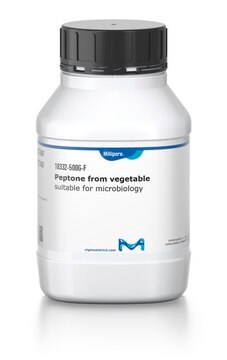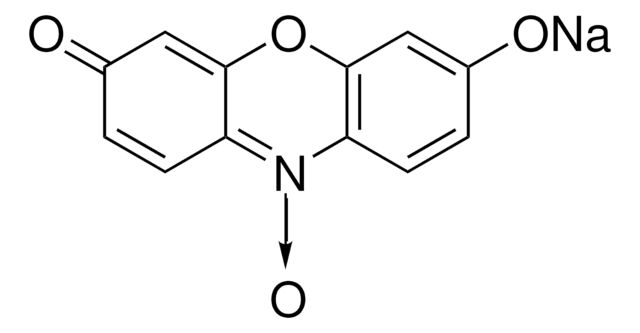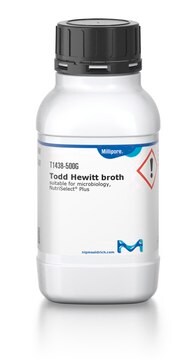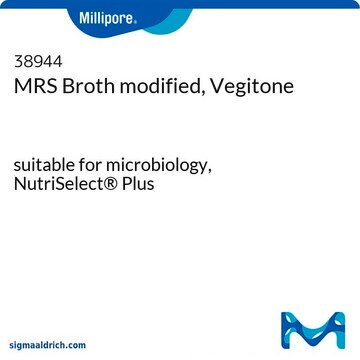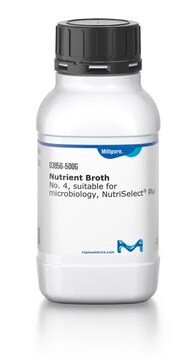41960
Vegitone infusion broth
suitable for microbiology, NutriSelect® Plus
Synonym(s):
Brain Heart Broth, Vegitone
About This Item
Recommended Products
sterility
non-sterile
Quality Level
form
powder
shelf life
limited shelf life, expiry date on the label
composition
dextrose, 2.0 g/L
disodium phosphate, 2.5 g/L
peptone (vegetable), 10.0 g/L
sodium chloride, 5.0 g/L
vegetable infusion powder, 5.0 g/L
vegetable special infusion powder, 12.5 g/L
manufacturer/tradename
NutriSelect® Plus
packaging
pkg of -500 g
storage condition
(Dry place, tightly sealed containers)
final pH
7.4±0.2 (25 °C)
application(s)
agriculture
clinical testing
environmental
food and beverages
life science and biopharma
sterility testing
microbiology
storage temp.
2-25°C
suitability
Haemophilus spp.
nonselective for Bacteroides spp.
nonselective for Candida spp.
nonselective for Escherichia coli
nonselective for Neisseria spp.
nonselective for Pseudomonas spp.
nonselective for Staphylococcus spp.
nonselective for Streptococcus spp.
nonselective for bacteria (General Media)
nonselective for coliforms
General description
Application
Preparation Note
Footnote
The designations basic, plus, or prime are added to indicate the quality control level, from basic quality control to standard QC plus to prime for full regulatory compliance.
Legal Information
Storage Class Code
11 - Combustible Solids
WGK
WGK 3
Flash Point(F)
Not applicable
Flash Point(C)
Not applicable
Personal Protective Equipment
Choose from one of the most recent versions:
Already Own This Product?
Find documentation for the products that you have recently purchased in the Document Library.
Customers Also Viewed
Articles
An article concerning the detection, identification, differentiation, and cultivation of Pseudomonas species.
Our team of scientists has experience in all areas of research including Life Science, Material Science, Chemical Synthesis, Chromatography, Analytical and many others.
Contact Technical Service